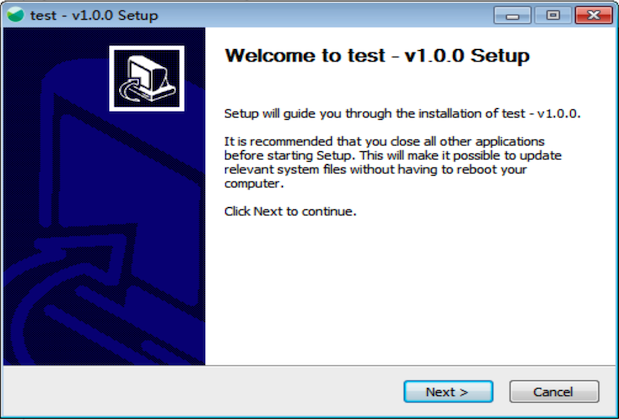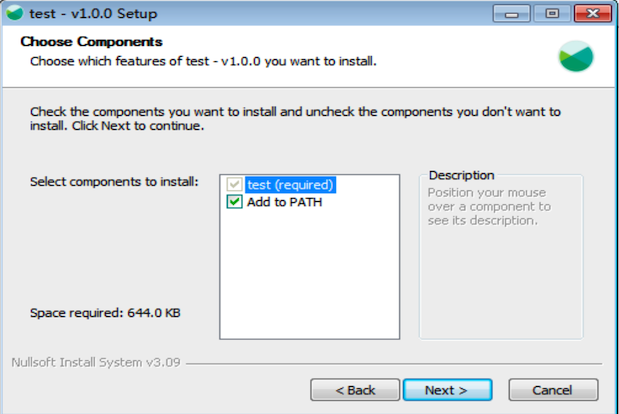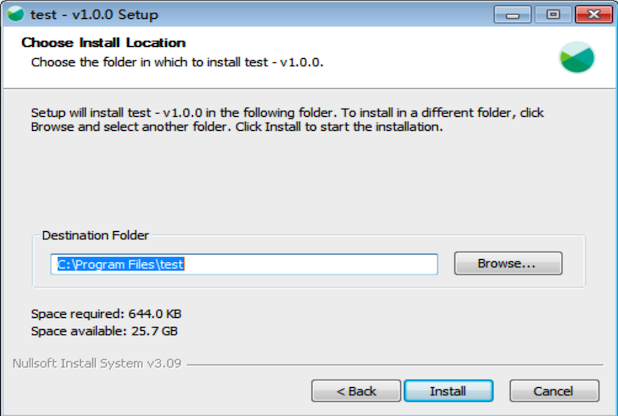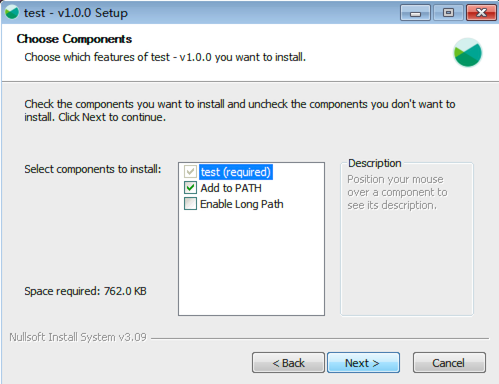Xmake 是一个基于 Lua 的轻量级跨平台构建工具。
它非常的轻量,没有任何依赖,因为它内置了 Lua 运行时。
它使用 xmake.lua 维护项目构建,相比 makefile/CMakeLists.txt ,配置语法更加简洁直观,对新手非常友好,短时间内就能快速入门,能够让用户把更多的精力集中在实际的项目开发上。
我们能够使用它像 Make/Ninja 那样可以直接编译项目,也可以像 CMake/Meson 那样生成工程文件,另外它还有内置的包管理系统来帮助用户解决 C/C++ 依赖库的集成使用问题。
目前,Xmake 主要用于 C/C++ 项目的构建,但是同时也支持其他 native 语言的构建,可以实现跟 C/C++ 进行混合编译,同时编译速度也是非常的快,可以跟 Ninja 持平。
Xmake = Build backend + Project Generator + Package Manager + [Remote|Distributed] Build + Cache
尽管不是很准确,但我们还是可以把 Xmake 按下面的方式来理解:
Xmake ≈ Make/Ninja + CMake/Meson + Vcpkg/Conan + distcc + ccache/sccache
新特性介绍
在介绍新特性之前,还有个好消息告诉大家,上个版本 Xmake 被收入到了 debian 仓库,而最近 Xmake 又进入了 Fedora 官方仓库,大家可以在 Fedora 39 上,直接通过下面的命令安装 Xmake 。
$ sudo dnf install xmake
非常感谢 @topazus @mochaaP 对 Xmake 的贡献,相关信息见:#941。
接下来,我们来介绍下,新版本带来的重量级特性:XPack 。
它类似于 CMake 的 CPack 命令,可以将用户工程快速打包生成各种格式的安装包。
目前 Xmake 的 XPack 已经支持以下格式的打包:
- nsis: Windows 下的可执行安装包
- runself: shell 自编译安装包
- targz: 二进制文件 tar.gz 包(绿色版)
- zip: 二进制文件 zip 包(绿色版)
- srctargz:源文件 tar.gz 包
- srczip: 源文件 zip 包
- srpm: rpm 源码安装包
- rpm: rpm 二进制安装包
除了上述已经支持的打包格式,还有 deb 等包格式也在陆续支持中,并且用户也可以配置生成自定义的包格式文件。
XPack 打包
下面是一个完整例子,我们可以先简单看下:
set_version("1.0.0")
add_rules("mode.debug", "mode.release")
includes("@builtin/xpack")
target("test")
set_kind("binary")
add_files("src/*.cpp")
xpack("test")
set_formats("nsis", "zip", "targz", "runself")
set_title("hello")
set_author("ruki")
set_description("A test installer.")
set_homepage("https://xmake.io")
set_licensefile("LICENSE.md")
add_targets("test")
add_installfiles("src/(assets/*.png)", {prefixdir = "images"})
add_sourcefiles("(src/**)")
set_iconfile("src/assets/xmake.ico")
after_installcmd(function (package, batchcmds)
batchcmds:mkdir(package:installdir("resources"))
batchcmds:cp("src/assets/*.txt", package:installdir("resources"), {rootdir = "src"})
batchcmds:mkdir(package:installdir("stub"))
end)
after_uninstallcmd(function (package, batchcmds)
batchcmds:rmdir(package:installdir("resources"))
batchcmds:rmdir(package:installdir("stub"))
end)
我们通过 includes("@builtin/xpack") 引入 xpack 的所有配置接口,包括 xpack 配置域,以及它的所有域接口。
然后我们执行:
$ xmake pack
即可生成所有安装包。
生成 NSIS 安装包
只要配置了 set_formats("nsis") 格式,然后执行 xmake pack 命令,就能生成 NSIS 格式的安装包。
另外,xmake 还会自动安装生成 NSIS 包所需的工具,实现真正的一键打包。
$ xmake pack
note: install or modify (m) these packages (pass -y to skip confirm)?
in xmake-repo:
-> nsis 3.09
please input: y (y/n/m)
=> install nsis 3.09 .. ok
[ 25%]: compiling.release src\main.cpp
[ 37%]: compiling.release src\main.cpp
[ 50%]: linking.release foo.dll
[ 62%]: linking.release test.exe
packing build\xpack\test\test-windows-x64-v1.0.0.exe
pack ok
test-windows-x64-v1.0.0.exe 就是我们生成的安装包,双击运行它,就能安装我们的二进制文件到指定目录。



增加组件安装
我们还可以给 NSIS 增加组件安装命令,只有当用户选择指定组件的时候,它的安装命令才会被执行。
xpack("test")
add_components("LongPath")
xpack_component("LongPath")
set_default(false)
set_title("Enable Long Path")
set_description("Increases the maximum path length limit, up to 32,767 characters (before 256).")
on_installcmd(function (component, batchcmds)
batchcmds:rawcmd("nsis", [[
${If} $NoAdmin == "false"
; Enable long path
WriteRegDWORD ${HKLM} "SYSTEM\CurrentControlSet\Control\FileSystem" "LongPathsEnabled" 1
${EndIf}]])
end)
这个例子中,我们在里面添加了一个 NSIS 特有的自定义命令,去实现对长路径的支持。

生成自安装包
我们也可以生成基于 shell 脚本的自编译安装包。我们需要配置 runself 打包格式,然后通过 add_sourcefiles 添加需要参与编译安装的源文件。
接着,我们需要自定义 on_installcmd 安装脚本,里面去配置如果编译源码包,我们可以简单的调用一个内置的编译安装脚本文件,也可以直接配置 make install 等编译安装命令。
例如:
xpack("test")
set_formats("runself")
add_sourcefiles("(src/**)")
on_installcmd(function (package, batchcmds)
batchcmds:runv("make", {"install"})
end)
然后,我们执行 xmake pack 命令,就可以生成一个自安装的 xxx.gz.run 包,默认采用 gzip 压缩。
$ xmake pack
packing build/xpack/test/test-macosx-src-v1.0.0.gz.run
pack ok
我们可以使用 sh 去加载运行它来安装我们的程序。
$ sh ./build/xpack/test/test-macosx-src-v1.0.0.gz.run
我们也可以看一个比较完整的例子:
xpack("xmakesrc")
set_formats("runself")
set_basename("xmake-v$(version)")
set_prefixdir("xmake-$(version)")
before_package(function (package)
import("devel.git")
local rootdir = path.join(os.tmpfile(package:basename()) .. ".dir", "repo")
if not os.isdir(rootdir) then
os.tryrm(rootdir)
os.cp(path.directory(os.projectdir()), rootdir)
git.clean({repodir = rootdir, force = true, all = true})
git.reset({repodir = rootdir, hard = true})
if os.isfile(path.join(rootdir, ".gitmodules")) then
git.submodule.clean({repodir = rootdir, force = true, all = true})
git.submodule.reset({repodir = rootdir, hard = true})
end
end
local extraconf = {rootdir = rootdir}
package:add("sourcefiles", path.join(rootdir, "core/**|src/pdcurses/**|src/luajit/**|src/tbox/tbox/src/demo/**"), extraconf)
package:add("sourcefiles", path.join(rootdir, "xmake/**"), extraconf)
package:add("sourcefiles", path.join(rootdir, "*.md"), extraconf)
package:add("sourcefiles", path.join(rootdir, "configure"), extraconf)
package:add("sourcefiles", path.join(rootdir, "scripts/*.sh"), extraconf)
package:add("sourcefiles", path.join(rootdir, "scripts/man/**"), extraconf)
package:add("sourcefiles", path.join(rootdir, "scripts/debian/**"), extraconf)
package:add("sourcefiles", path.join(rootdir, "scripts/msys/**"), extraconf)
end)
on_installcmd(function (package, batchcmds)
batchcmds:runv("./scripts/get.sh", {"__local__"})
end)
它是 xmake 自身源码的安装包配置脚本,更完整的配置可以参考:xpack.lua
这里,它通过调用源码包内置的 ./scripts/get.sh 安装脚本去执行编译安装。
生成源码归档包
另外,我们也可以配置 srczip 和 srctargz 格式,来生成源码压缩包,它不是完整的安装包,也没有安装命令,仅仅用于源码包分发。
xpack("test")
set_formats("srczip", "srctargz")
add_sourcefiles("(src/**)")
$ xmake pack
packing build/xpack/test/test-macosx-src-v1.0.0.zip ..
packing build/xpack/test/test-macosx-src-v1.0.0.tar.gz ..
pack ok
生成二进制归档包
我们也可以配置 zip 和 targz 来生成二进制的压缩包,它会先自动编译所有绑定的 target 目标程序,将所有需要的二进制程序,库文件打包到 zip/tar.gz 格式。
这通常用于制作绿色版的安装包,内部不太任何自动安装脚本,用户需要自己设置 PATH 等环境变量。
xpack("test")
set_formats("zip", "targz")
add_installfiles("(src/**)")
$ xmake pack
packing build/xpack/test/test-macosx-v1.0.0.zip ..
packing build/xpack/test/test-macosx-v1.0.0.tar.gz ..
pack ok
!> 需要注意的是,打二进制文件到包里,使用的是 add_installfiles 而不是 add_sourcefiles。
我们也可以通过 add_targets 去绑定需要安装的 target 目标程序和库。更多详情见下面关于 add_targets 的接口描述。
生成 SRPM 源码安装包
它可以生成 .src.rpm 格式的源码安装包。
我们可以通过配置 add_targets 关联需要构建的目标,在生成的 srpm 包中,它会自动调用 xmake build 和 xmake install 去构建和安装包。
xpack("test")
set_homepage("https://xmake.io")
set_license("Apache-2.0")
set_description("A cross-platform build utility based on Lua.")
set_formats("srpm")
add_sourcefiles("(src/**)")
add_sourcefiles("./xmake.lua")
add_targets("demo")
它会生成类似下面的 spec 文件,然后自动调用 rpmbuild 去生成 .src.rpm 包。
Name: test
Version: 1.0.0
Release: 1%{?dist}
Summary: hello
License: Apache-2.0
URL: https://xmake.io
Source0: test-linux-src-v1.0.0.tar.gz
BuildRequires: xmake
BuildRequires: gcc
BuildRequires: gcc-c++
%description
A test installer.
%prep
%autosetup -n test-1.0.0 -p1
%build
xmake build -y test
%install
xmake install -o %{buildroot}/%{_exec_prefix} test
cd %{buildroot}
find . -type f | sed 's!^\./!/!' > %{_builddir}/_installedfiles.txt
%check
%files -f %{_builddir}/_installedfiles.txt
%changelog
* Fri Dec 22 2023 ruki - 1.0.0-1
- Update to 1.0.0
我们也可以通过 on_buildcmd 和 on_installcmd 自定义构建和安装脚本。
xpack("test")
set_homepage("https://xmake.io")
set_license("Apache-2.0")
set_description("A cross-platform build utility based on Lua.")
set_formats("srpm")
add_sourcefiles("(src/**)")
add_sourcefiles("./configure")
on_buildcmd(function (package, batchcmds)
batchcmds:runv("./configure")
batchcmds:runv("make")
end)
on_installcmd(function (package, batchcmds)
batchcmds:runv("make", {"install", "PREFIX=%{buildroot}"})
end)
生成 RPM 二进制安装包
RPM 包将会直接生成编译好的二进制安装包。xmake 会自动调用 rpmbuild --rebuild 命令去构建 SRPM 包生成它。
而在 XPack 中,我们仅仅只需要配置 set_formats("rpm") 即可支持 rpm 包生成,其他配置与 srpm 包完全一致。
xpack("test")
set_formats("rpm")
-- TODO
打包命令参数
指定打包格式
如果我们在配置文件中已经使用 set_formats 配置了多个打包格式,那么默认情况下,xmake pack 会自动生成所有这些格式的包。
当然,我们也可以通过 xmake pack --formats=nsis,targz 来选择性指定当前需要打哪些格式的包。
修改打包文件名
我们可以在配置文件中,通过 set_basename() 来修改包名,也可以通过命令行去修改它。
$ xmake pack --basename="foo"
packing build/xpack/test/foo.zip ..
pack ok
指定输出目录
默认的输出目录是在 build 目录下,但我们也可以修改输出的路径。
$ xmake pack -o /tmp/output
禁用自动构建
如果是打 NSIS 等二进制包,xmake pack 会先自动编译所有被绑定的 target 目标文件,然后再去执行打包逻辑。
但是如果我们已经编译过了,不想每次都去编译它,而是直接去打包,可以通过下面的参数禁用自动构建。
$ xmake pack --autobuild=n
接口描述
更多 XPack 打包接口描述见:XPack 打包接口文档。
安装包到本地
默认情况先,通过 add_requires("xxx") 配置的包都会被安装到全局目录,不同项目共用这些包。
而新版本中,我们新增了一个 package.install_locally 策略,可以配置让 xmake 将包安装到当前本地项目目录。
set_policy("package.install_locally", true)
更新日志
新特性
- 添加
network.mode策略 - #1433: 添加
xmake pack命令去生成 NSIS/zip/tar.gz/srpm/rpm/runself 安装包 - #4435: 为 UnityBuild 的组模式增加 batchsize 支持
- #4485: 新增 package.install_locally 策略支持
- 新增 NetBSD 支持
Changes
- #4484: 改进 swig 规则
- 改进 Haiku 支持
Bugs 修复
1
ashong 2023-12-26 11:36:55 +08:00 via iPhone
加油👍
|
2
shuax 2023-12-26 13:30:08 +08:00
还能打包吗,那是不是得支持一下 msi 和 msix 。
|
3
chu1337 2023-12-26 13:50:30 +08:00
过于疯狂了,现在支持的太多了,记得前一段看还支持 rust 、go 了...
|